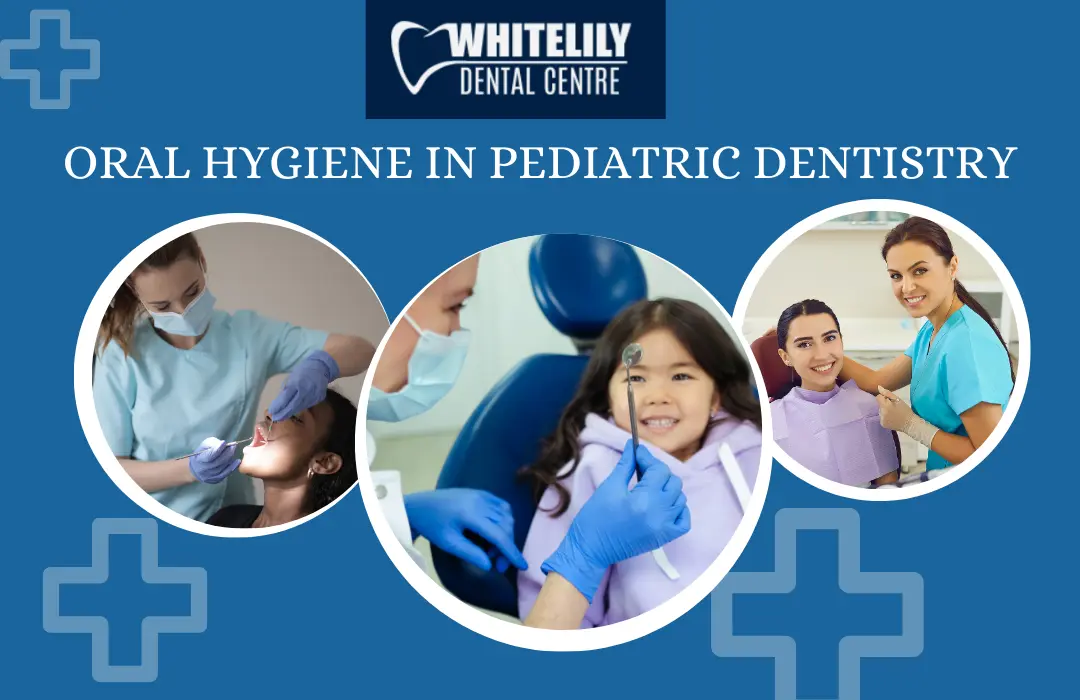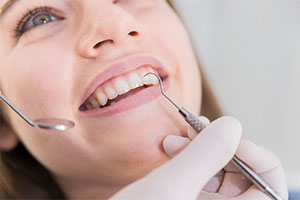Maintaining proper oral hygiene from a young age is not just about having a bright smile—it’s a crucial aspect of overall health. The foundation for healthy teeth begins in childhood, making it imperative to instill good dental care habits early on. As a parent, you play a pivotal role in teaching your children the importance of pediatric dentistry. In this blog, we’ll explore seven essential tips that will help ensure your child’s oral health and set them up for a lifetime of healthy smiles in Oakville, ON.
Brushing Twice a Day
Brushing teeth at least twice a day is one of the fundamental practices for maintaining healthy teeth and gums. Teach your child the correct brushing technique: use a soft-bristled toothbrush and make gentle circular motions to clean all surfaces of the teeth. Encourage them to spend at least two minutes brushing. Additionally, opt for fluoride toothpaste as it helps prevent cavities and strengthens tooth enamel.
Mastering the Correct Brushing Technique
Teaching your child the correct brushing technique is as crucial as the act itself. Follow these steps to ensure they brush effectively:
- Choose the Right Tools: According to pediatric dentistry. one should start with a soft-bristled toothbrush. Soft bristles clean teeth gently without damaging gums. Ensure the toothbrush has a small head to reach all areas of the mouth comfortably.
- Use Fluoride Toothpaste: Fluoride is your child’s dental ally. It strengthens enamel and prevents tooth decay. Use a pea-sized amount of fluoride toothpaste on the brush.
- Brushing Motion: Teach your child to use gentle circular motions while brushing. This technique effectively removes plaque from all tooth surfaces. Encourage them to brush both the outer and inner surfaces of teeth, as well as the chewing surfaces.
- Brush the Tongue: Don’t forget the tongue! Gently brushing the tongue removes bacteria and helps maintain fresh breath.
- Two-Minute Rule: The ideal brushing duration is two minutes. Make it fun by using a timer or playing a short song. Divide the mouth into four sections and spend about 30 seconds on each.
Choosing the Right Toothbrush and Toothpaste
Choosing the right toothbrush is essential for effective brushing. Opt for a child-appropriate toothbrush with soft bristles and a small-sized head that can easily access all areas of the mouth. When it comes to toothpaste, ensure it contains fluoride, a mineral that strengthens teeth and prevents decay. Use only a pea-sized amount for your child to avoid excessive swallowing.
Selecting the Ideal Toothbrush
A toothbrush is like a trusted companion on your child’s journey to a healthy smile. Here’s how you can ensure you’re making the right choice:
- Child-Appropriate Design: Opt for a toothbrush specifically designed for children. These brushes are smaller in size and come in attractive colors and designs that can make brushing fun and engaging.
- Soft Bristles: Choose a toothbrush with soft bristles. They effectively clean teeth without being harsh on the sensitive gums. Avoid medium or hard bristles, as they can lead to gum irritation and enamel abrasion.
- Small-Sized Head: A toothbrush with a small head allows better access to hard-to-reach areas, ensuring a thorough cleaning experience. This is especially important for reaching those back molars.
- Comfortable Grip: Look for a toothbrush with an ergonomic handle that fits comfortably in your child’s hand. A comfortable grip will make brushing less challenging and more enjoyable.
Flossing and Interdental Cleaning
Teach your child the importance of flossing to remove food particles and plaque from between teeth. Using child-friendly floss picks can make the process easier and more enjoyable for them. These interdental cleaners come in various fun shapes and colors, making it a playful experience while maintaining oral health.
Making Interdental Cleaning a Playful Adventure
Transforming flossing into an enjoyable activity can set the stage for a positive association with oral care. Here are a few creative ways to make interdental cleaning a playful adventure:
- Flossing Dance: Create a special flossing dance that your child can perform while flossing their teeth. This adds a touch of fun to the routine and encourages them to floss with enthusiasm.
- Storytime Floss: Narrate a short, imaginative story while your child flosses. Let their imagination run wild as they explore the hidden crevices of their teeth with their floss pick “adventurer.”
- Flossing Reward Chart: Design a colorful chart where your child can place a sticker every time they floss. After a certain number of stickers, they earn a small reward, creating a sense of accomplishment.
- Flossing Countdown: Set a timer for a brief duration, and challenge your child to floss as many teeth as they can before the timer goes off. This turns flossing into a mini-game.
Maintaining a Balanced Diet
A well-balanced diet not only contributes to overall health but also impacts dental health. Encourage your child to consume teeth-friendly foods like fruits, vegetables, and dairy products. These foods provide essential nutrients that promote strong teeth and gums. On the other hand, limit sugary snacks and acidic beverages, as they can lead to tooth decay and enamel erosion. Opt for water over sugary drinks to help rinse away food particles and maintain a neutral oral pH.
Points to consider when encouraging your child to maintain a teeth-friendly diet
- Limit Sugary Snacks: Sugary snacks, especially those that are sticky or chewy, can cling to teeth and provide a breeding ground for harmful bacteria. If your child consumes sugary treats, encourage them to brush their teeth or rinse their mouth with water afterward.
- Acidic Foods and Drinks: While some acidic foods like citrus fruits are healthy in moderation, excessive consumption can weaken tooth enamel over time. Encourage your child to consume acidic foods as part of a meal rather than as a standalone snack. Rinse the mouth with water after eating them.
- Moderation: Teach your child about the importance of moderation. It’s okay to enjoy occasional treats, but they should be balanced with a diet rich in nutrient-dense foods.
- Regular Dental Hygiene: Along with a balanced diet, emphasize the importance of regular dental hygiene. Encourage your child to brush their teeth twice a day, floss daily, and visit the dentist for check-ups and cleanings.
Regular Dental Check-ups
Regular visits to the pediatric dentist are crucial for ensuring optimal oral health. Dental professionals at the Dental Office in Oakville, ON, can provide thorough cleanings, monitor dental development, and detect potential issues early on. Address any concerns your child might have about visiting the dentist’s office and reassure them that the experience is a positive one. Establishing a trusting relationship with the dentist can ease anxiety and create a positive association with dental care.
Tips to Make Dental Visits Positive for Your Child
- Choose a Pediatric Dentist: Opt for a dentist who specializes in pediatric dentistry. They have experience working with children and can create a more child-friendly atmosphere.
- Start Early: Schedule your child’s first dental visit around their first birthday or as soon as their first tooth emerges. Early visits help your child become familiar with the dental office environment.
- Stay Positive: Talk to your child about the upcoming dental visit in a positive and reassuring manner. Avoid using negative or scary language.
- Role Play: Pretend play at home can help your child become comfortable with the idea of a dental visit. Use a toothbrush to “examine” their teeth or let them play dentist with their toys.
- Comfort Items: Allow your child to bring a comfort item, like a favorite toy or blanket, to the dental visit to help them feel at ease.
- Positive Reinforcement: Offer praise and positive reinforcement after the dental visit. Let them know how proud you are of their bravery.
- Regular Visits: Stick to a consistent dental check-up schedule. This routine helps normalize dental visits and makes them less intimidating over time.
- Open Communication: Encourage your child to ask questions and express any concerns they might have. Address their questions honestly and reassure them as needed.
Protecting Teeth During Sports and Play
Active children are at risk of dental injuries during sports and physical activities. Ensure your child wears a mouthguard during these times to prevent chipped teeth, fractures, and other dental traumas. Custom-fitted mouthguards offered by the Dental Office in Oakville, ON, offer the best protection and ensure a comfortable fit, allowing your child to focus on enjoying their activities while staying safe.
Why are Mouthguards Important?
- Preventing Dental Injuries: Children engaged in sports or physical activities are susceptible to accidental impacts that could result in dental trauma. Wearing a mouthguard can significantly reduce the risk of chipped, broken, or knocked-out teeth.
- Types of Mouthguards: There are three main types of mouthguards: stock mouthguards, boil-and-bite mouthguards, and custom-fitted mouthguards. Custom-fitted mouthguards, obtained through a dentist, offer the highest level of protection and comfort.
- Custom-Fitted Mouthguards: While over-the-counter mouthguards are readily available, custom-fitted mouthguards offer a better fit and superior protection. A dentist at the Dental Office in Oakville, ON, can create a mouthguard specifically tailored to your child’s mouth, ensuring it fits snugly and doesn’t impede breathing or speech.
- Comfort and Compliance: Ill-fitting or uncomfortable mouthguards can discourage children from wearing them consistently. Custom-fitted mouthguards are more likely to be comfortable, encouraging your child to wear them during every sports activity.
Leading by Example
Children often emulate their parents’ behavior. Use this to your advantage by being a role model for good oral hygiene. Brush and floss your teeth alongside your child, showing them that these habits are important for everyone in the family. Turn oral care routines into a family bonding experience, making it both educational and fun.
Conclusion
Your child’s dental health is an investment in their overall well-being. By imparting these seven vital pediatric dentistry tips, you’re giving your child the tools they need to maintain healthy teeth and gums throughout their lives. From teaching them to brush and floss correctly to encouraging a balanced diet and regular dental visits to the Dental Office in Oakville, ON, every step contributes to a lifetime of beautiful smiles and excellent oral health. Remember, as you teach your child, you’re not just promoting dental care but instilling lifelong habits that will benefit them in countless ways.





